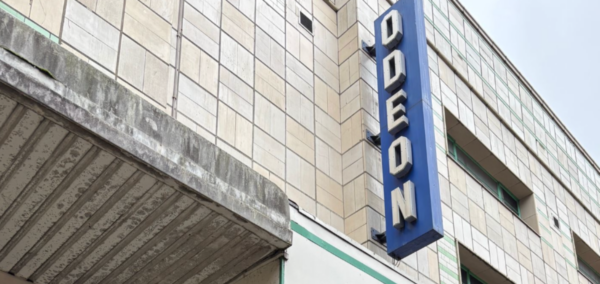
UCL offered striking lecturer up to £125 to cross the picket and mark student assessments
The uni offered £125 for 10,000 word dissertations, £45 for first markers of 3,000 word essays and £20 for second marking
University College London tried to pay a union member from another London university to break the Marking and Assessment Boycott (MAB).
This latest move marks an escalation in the university’s attempts to break the industrial action, trying to pay an active member of the University College Union (UCU) to ‘cross the picket line’.
In a message seen by The Tab London, UCL offered the union member £125 for marking a 10,000 word dissertation, £45 to be the first marker on 3,000 word essays and £20 for second marking.
A spokesperson from UCL’s UCU branch touted the news as a positive sign for its members: “It shows that university employers have plenty of cash that they can direct as they wish, to pay for academic mercenary marking, just for the sake of breaking the industrial action (MAB) at UCL. It demonstrates desperation and that the MAB is biting.”
The pay offer comes amidst rising tensions in the ongoing national dispute between universities and labour unions, with UCL under pressure to deliver classifications to recent graduates. UCL-UCU claims these demands for grades has led the university to compromise academic standards.

In a letter sent to UCL management earlier this month, the union decried what it considered a breakdown in assessment procedures in the face of the MAB.
A UCU spokesperson said: “UCL has made a calculation where they weighed the cost of potential legal action by students from awarding their degrees late versus the cost of legal action for discrepancies and unfairness in the examination processes.”
In their letter addressed to Provost Michael Spence, the union also warned: “UCL is seriously damaging its own ability to maintain academic standards of assessment.”
Most Read
Citing the use of under-qualified examiners and undue pressure on Exam Boards to approve assessment procedures, the UCU argues that the university’s attempts to deliver grades quickly have jeopardised the quality of marking and undermined UCL’s academic standards.
According to a UCL-UCU spokesperson, several practices undertaken by UCL threaten the integrity of assessment procedures. They claim the university has allowed Post Graduate Teaching Assistants to mark essays – in contradiction of departmental rules – and that heads of department are grading papers “regardless of expertise” on the topics being assessed.
The letter also criticised other measures that they claim weaken the integrity of assessment. These include: “Departments engaging external markers without due oversight”, “anonymising markers, thereby rendering them unaccountable” and “an absence of quality control and parity measures.”

In their letter to senior management, the UCU also expressed concern over UCL management’s treatment of Exam Boards.
According to UCL, these bodies exist with several responsibilities, including: “To set, safeguard and monitor the academic standards of the programmes and/or modules under its remit”, “to ensure that assessment, marking and moderation processes are appropriate, rigorous and fair,” “to ensure equity of treatment for students,” and “to ensure that assessment has been conducted within UCL’s regulations and guidance.”
In its complaint, the UCU criticised “undue pressure on departmental Exam Boards” including “threats to ‘overrule’ Boards if they do not progress or graduate students.” The union also told The Tab: “In one case an exam board chair was removed using dubious procedures to make way for another that is expected not to ask questions about who marked the exams in question.”
As the MAB continues with no end in sight, these latest events suggest the pressure is building on UCL from both unions and the threat of legal action from disgruntled graduates.
A UCL spokesperson told The Tab London: “Our students have worked extremely hard all year to submit high quality work and we have been doing our best to ensure their assessments and exams are marked in good time.
“The vast majority of our staff have been working as normal. In addition, in line with our usual emergency procedures, we have put in place a range of mitigation measures to support as many students to graduate and progress as possible.
“We take academic integrity extremely seriously and these measures ensure all assessments and exams are marked with the normal rigour and expertise, and have the appropriate oversight.
“As a result of these steps, the majority of UCL students have been unaffected by the marking and assessment boycott and have already received their marks. It is with deep regret, however, that a minority of students have experienced a delay in receiving some or all of their marks and we have emailed all students individually, to explain if or how they are affected.
“In our determination to ensure students are not negatively impacted by this industrial action, we have also scheduled an additional results day for this Thursday (27 July), providing extra time for some departments to process outstanding marks.
“Given the above, we expect the vast majority of our final year students to be awarded with a classified degree certificate on time.
“However we do recognise this should be a time of great celebration for all our students and we offer sincere apologies to any of those affected by this unprecedented situation. We do not underestimate what an anxious time this is for our students and the full range of UCL’s Student Support and Wellbeing Services are available, including 24/7 mental health support.”
Related articles recommended by this author:
• Students can sue UCL for compensation for Covid and strike disruptions, judge rules
• ‘Don’t choose Edinburgh Uni’: Hundreds join protest against handling of marking boycott
• Meet the London student who wore an ‘I want a refund’ banner to her graduation ceremony
















